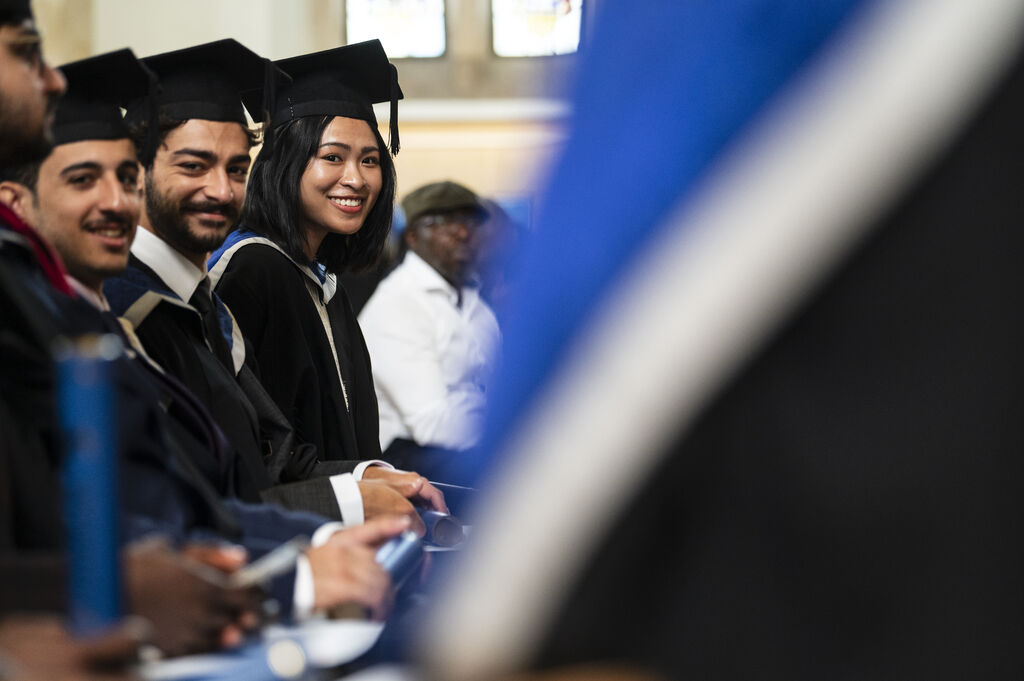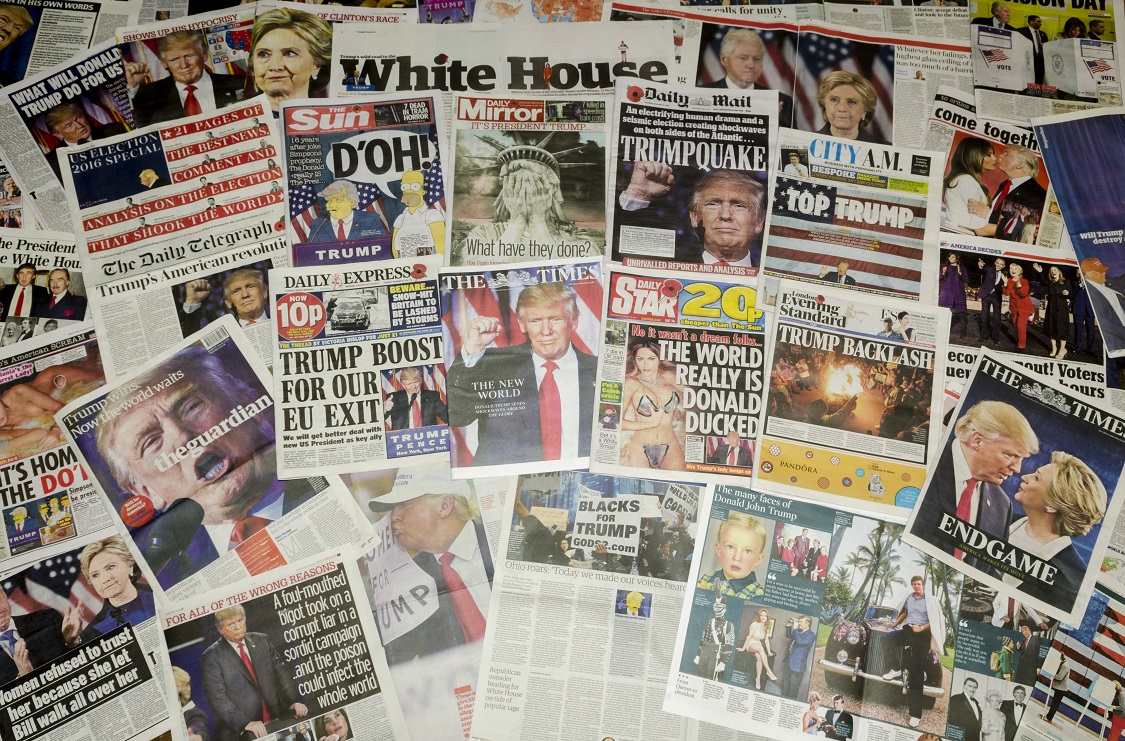Provost and Senior Vice-President Tim Dunne reflects on the past year and identifies the key trends impacting the operations and mission of universities in 2025.
Like around 19 million others, a highlight over the holiday period was watching the Gavin and Stacey Christmas special. Vanessa Shanessa Jenkins, ‘Ness’, has a vocabulary all of her own, including the greeting ‘what’s occurring?’. That’s a great question to ask about 2025!
Below I identify five trends impacting the operations and mission of universities, and offer thoughts on how the higher education sector should respond.

Trend: G-none.
There used to be a time when university leaders didn’t have to pay too much attention to global trends. After all, the most significant challenges to universities have been their own state or the Church. Arguably, the global context for universities is more complex today than at any point since the first wave of expansion was established 150 years or so ago. How should we characterise the likely global context that will impact university life in 2025?
While globalisation was a driver of integration, what is striking about the world order today are the forces of anti-globalisation. Whether it is the nationalist-populism of the Trump Presidency or Marxist-nationalism of President Xi, neither see a need to uphold the rules based on international order. Forget the G20, the BRICs, or the G7 – for 2025, as political science futurist Ian Bremmer argues, G-none is nearer to the mark.
What does G-none signify? Chronic global instability brought about by an assault on free trade, an unwillingness to deal with the lawless behaviour of rogue states (of which Russia is the king of rogues), and growing tensions within liberal societies between the capability of the government and the governed. Even when the United States had its ‘unipolar moment’ under George W Bush, there was at least a G1 to rule the world.
One of the major ironies of globalisation in recent years is that China has been a better advocate for economic liberalisation than most western states. Shortly after Trump was elected, President Xi said that undermining economic cooperation and dividing countries in ‘an interdependent world’ was a backward step historically. Yet there is no sign that China is ready and willing to defend the rules-based order as the United States largely succeeded in doing in the post-1945 period. More likely is a return to the Thucydides’ maxim, the strong will do what they will, the weak will do what they can.
Response. Stay global.
When it comes to global governance, universities are relatively small players despite the undoubted soft power they wield. The power of attraction is an attribute of institutions that are seen to be independent from business interests and Government rule (accepting that a national legal and regulatory framework power is always going to be present).
International student mobility brought many upsides. Fee income for starters – 20% uplift on average and over 30% for one in six universities. Cultural diversity was also enhanced, adding to the richness of the student experience. There is no question that endemic global instability deters future students from studying abroad.
Even if it is the case that fewer students may decide to study abroad, the intensification of global education is unlikely to diminish. Increasingly, universities should look to partnering with the ‘global South’ and to further innovations in on-line learning designed to attract enrolments across all continents.
Potential hybrid versions of on-line programmes will come on stream – where the ‘on location’ dimension is for a relatively short and affordable period of time. And delivering with partners – be they industry or other like-minded universities – also presents opportunities to extend our international footprint while being less dependent on actual student flows. Being smarter and more creative about the supply chain of potential international students ought to be a priority on every university’s leaders ‘to do’ list for 2025.
We also need to stay global because knowledge has to travel beyond borders. While it is true that universities have always been global – neither the natural nor the human sciences can progress if they are hemmed in by territorial boundaries. The character of these interdependencies changed markedly with the significant influx of international students post the new millennium.

Trend: instability during power transitions.
Former Australian Prime Minister and current Ambassador to the United States, Kevin Rudd, has published a new work On Xi Jinping; the origin of the book being his Oxford DPhil thesis. Rudd challenges the recent orthodox view of Xi as a pragmatist; rather, he is on a “historical mission to create a new era of Chinese pre-eminence”. He is also increasingly obsessed with domestic political issues including shoring up the power of the Party and dealing with declining economic growth.
Power transitions in global politics are seldom smooth or peaceful. There is every reason to fear that a nationalist populist in Washington and a nationalist Marxist in Beijing are going to play out a political struggle that will impact the rest of global society. Leaving to one side the unpredictable nature of the political leaders, history tells us that systemic changes in the balance of power tend to occur when the rising power wages war on the so-called ‘hegemon’.
In his monumental study of power transitions, Harvard political scientist Graham Allison concluded that 12 out of 15 instances, over the last 500 years, ended in war. Interestingly, one of the instances of peaceful transition, according to Allison, was the collapse of the Soviet Union. While it is true that there was no direct military conflict between East and West, the Russian war against Ukraine is arguably a proxy war being fought 30 years after the end of the Cold War.
Response: re-discover the convening power of an anchor institution.
We can expect this struggle to impact university life in one way or another, just as the wars in Gaza and Ukraine reverberated across so many campuses in the last couple of years. 2024 was the year of encampments: over 30 in the UK and comparable levels of activism seen at universities in Australian, Canadian, European, and US Universities. How leaders handled the protests was rightly a matter of scrutiny; and in the case of the Columbia University President, the perception that they had mishandled the protest brought about their resignation. It had been ‘difficult to overcome divergent views across our community’, as former President Shafik put it understatedly.
Last year, once again, the University sector came under pressure to take a particular position on a number of global issues as well as the racist attacks that took place in many British cities in July 2024. Like many other universities, Surrey chose not to take a stance on the riots – a position that some in our community believed appeared to be indifferent to the victims of the lawless violence.
The University of Manchester University’s VC, Duncan Ivison, recently wrote a powerful piece in the THE (10.1.25) about how it is important not to mistake a commitment to autonomy for moral neutrality. A better way forward is for universities to draw on their considerable soft power resources – or what he calls ‘convening power’ – so that knowledge and insight is brought into an understanding of the moral and political complexities lying behind the headlines.
Emphasising the convening power of universities enables us to do what we do best. Namely, turn political crises into educational opportunities such that participants develop better mutual understanding about how the struggle arose and the ‘tools’ we have to mitigate or transcend previously irreconcilable views. Our invitation to the communities we serve should say this: come inside, engage, and disagree well.
At the same time, let’s not underestimate the extent to which the Trump Presidency is going to be at war with universities because of their assumed left-liberal leanings. Expect to see many disciplines under attack, including ‘area studies’, climate change, and policies/programmes designed to enhance equity, diversity and inclusion. Expect to see research collaborations with China receiving further scrutiny – and pressure put on third countries in terms of their ties with Chinese universities. And we will see more restrictions on visiting scholars in the US from so-called ‘countries of concern’, as occurred under Trump 1.0.

Trend: global financial woes.
While Trump will enter the White House with the US economy in good shape, prepare for the imposition of high tariffs against China and other economies that consumers rely upon. History suggests that tit-for-tat measures will be taken by the long list of impacted countries, which could be the prelude a global trade war. While restrictions will be the order of the day with regard to imports to the US, the opposite will be the case with American exports – fossil fuels and big Tech will be favoured by an enabling regulatory environment.
Countries and regions with the deepest ties to the US – such as the EU, China, Mexico, Vietnam, South Korea – face the biggest risk in the newly disrupted global economic order. The first sign of the impact of these dependencies has been the fall of Canada’s President Justin Trudeau, a resignation brought about internal differences about how to handle in-coming President Trump’s tariff threats.
Response: resilience, resilience, resilience.
There was much less talk about ‘broken business models’ in 2024 but that doesn’t mean we can be confident about the financial health of the sector, far from it. The OfS is predicting that over 70% of universities in the UK will be in deficit in 2025/26. The funding cliff that so many institutions are peering over is only likely to be averted if the Government accepts the need to link fees to inflation, restores the decline in Quality Rated funding for research, and develops a rescue plan to come to the aid of an institution which goes one step further than peering over the funding cliff edge.
While we are likely to hear about ‘green shoots’ of recovery being seen on campuses up and down the UK, the truth is that the gap between the real cost of teaching and the income is growing ($1.7bn) and the gap between the real cost of research and research income is around £5bn. Short of a more favourable funding environment, these gaps will be closed by a further reduction in costs and with likely spill over effects on the student experience.
Over the last decade, the funding gap has been eased – or closed entirely – by international students paying fees that were more than double the amount charged to UK students. 2024 showed the downside risk of the dependency on international student fee income. After what the Times Higher Education referred to as ‘the great policy backlash’, each Anglophone country – the UK, Canada, Australia – has used different combinations of policy instruments through to the same effect, namely, to decrease the number of international students by around 40%.
Is this a ‘backlash’ – implying a strong but not necessarily long-lived response – or is it the new normal? A sound prediction for 2025 is that, despite a more welcoming language from the Labour Government, international student numbers will be regulated because they are caught up in an immigration debate that is hostile to inward migration.
An insight from the French philosopher and genealogist Michel Foucault is relevant here. According to him, those who control language allocated power. If only Labour had the courage to treat international students as ‘visiting student entrepreneurs’ rather than unwanted immigrants, then we could begin to see reversal in their decline.

Trend: new policy settings for Higher Ed.
Australia set a new bar for negotiating a compact between the sector and the Government. The review, formally titled the Australian Universities Accord, took two years to finalise the 47 recommendations that landed on the Minister’s desk in early 2024. While over-shadowed in many ways by the heated debate about international student caps, the Accord sets out a progressive vision for creating the tertiary sector. By 2050, it is envisaged that 80% of Australian citizens will graduate with a tertiary qualification which requires doubling the number of ‘Commonwealth supported students’ from 860,000 to 1.8m. The vision is not only bold in terms of the size of the population cohort, it is progressive in terms of social equity. The Accord argued that targets needed to be set for all under-represented groups (First Nations peoples, low SES, persons with disabilities, and those from rural and remote communities) such that under-represented groups attain parity by 2050.
Universities UK has produced a blueprint which covers similar ground – equity, funding, student experience, partnerships, local and regional engagement, and an innovative research ecosystem.
Response: when are five points on a page worth more than 100+ pages?
While both these national reviews are far reaching, and presented with granular detail on the basis of extensive research, sometimes it is the pithy statement that can have greater impact on what we do and how we do it. I’m thinking of the letter that the Secretary of State, Bridget Phillipson, wrote to Vice-Chancellors in November 2024. The letter conveyed the excellence news in terms of the uplift in domestic student fees from £9,250 to £9,535. It came with renewed expectations for HE providers, including: expand access and improve outcomes for disadvantaged students; make a major contribution to the economic growth mission; play a greater civic role; raise teaching standards; undertake reforms that will ‘drive efficiency’ and reduce costs.
It will be well worth our while keeping these points in our back pockets as key decisions and actions are taken during 2025.

Trend: AI unleashed.
Through 2023 and 2024, a number of technology leaders called for a slow-down in AI innovation – including Elon Musk. Their rationale was that AI tools represented profound risks to society and to humanity. Such relative caution underpinned the UK government’s hosting of an AI ‘safety summit’ which led to the Bletchley Declaration; at its core, the Declaration is a call for multilateral cooperation to set standards for protection, transparency, and control, such that AI can be ‘harnessed responsibly for good and for all’. The next safety summit, in Paris in February, has been re-named an ‘AI Action Summit’ which is geared to a more growth oriented agenda. It also reflects the fact that the leader of the G-none has many of the Tech giants – not least Musk – positioning themselves for more regulation rather than less.
Response.
Many leading AI research centres were branded as human- or people-centred, including Surrey’s outstanding Pan-University People-Centred AI Institute. Given a likely shift in the United States to less regulation – and more emphasis upon how AI can deliver economic growth (and in so doing enhance national power), research on AI that is independent from this agenda is likely to be more important than ever.

So, prepare…
Another favourite phrase of Nessa’s is ‘I knows it…’ If there is a truth about 2025 it is probably that none of us really ‘knows it’. In the absence of reliable knowledge it is prudent to prepare for a rocky road ahead. And to remember a Confucian insight that the way to cross a turbulent river is by ‘feeling the stones’.
